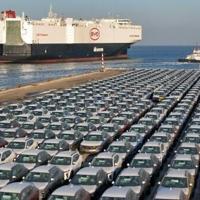The EU is facing a delicate situation as it gets ready to increase taxes on Chinese electric cars to protect European industry, while avoiding a US-style confrontation with Beijing that could lead to a trade war.
Europe’s automotive industry is a crucial part of its economy, home to iconic brands like Mercedes and Ferrari, but it is at risk due to the shift away from combustion engines and China’s lead in electric vehicles.
When Brussels launched an investigation into Chinese electric car subsidies last year, it was to address what they saw as unfair practices damaging European car manufacturers.
China reacted strongly at the time, calling it protectionism.
The EU has until July 4 to decide on a provisional increase in import duties on Chinese electric vehicles, currently at 10 percent, with the decision expected in June.
China has threatened to retaliate with its own duties, potentially targeting Europe’s agriculture imports.
Experts believe Brussels could raise duties to 20-30 percent, a measure to discourage but not completely deter Chinese exporters, who may need 40-50 percent tariffs according to research firm Rhodium Group.
European Commission President Ursula von der Leyen emphasized that the EU’s action would be “targeted” in contrast to the US, which imposed 100 percent duties on Chinese electric cars.
The situation with electric vehicles comes at a time of increasing trade tensions between Beijing and Western countries, with investments in the energy transition and allegations of unfair competition from China on renewable energy technologies.
The EU is being cautious in its approach, aiming to avoid a full-blown trade war or technology conflict with China.
China is a major car exporter to Europe, with imports of EVs from China increasing significantly in recent years.
The EU must balance concerns about Chinese imports with its goals of reducing carbon emissions and promoting electric vehicle adoption in line with its 2035 fossil fuel car sales ban.
China has criticized the EU’s actions, warning that they could harm consumers and global efforts to address climate change.
The EU’s investigation into Chinese subsidies has caused divisions among member states and European manufacturers, with some in favor and others against the probe.
China’s response to the investigation has been sharp, hinting at potential retaliatory measures such as anti-dumping probes and targeting imports like pork and brandy from the EU.
The EU will need to make a final decision on any duties by November.





